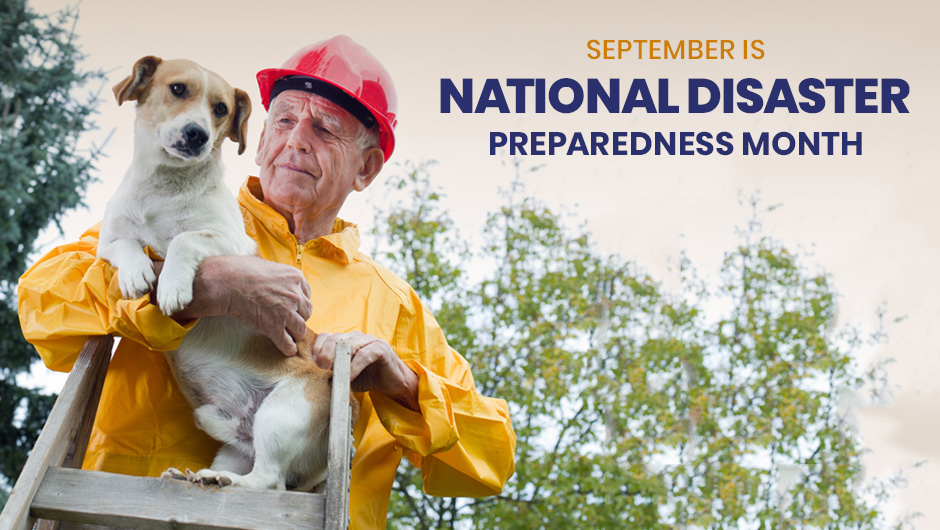What to Include in a Disaster Kit for Pets
It will be much easier to keep your pet safe in a disaster if you prepare a care kit in advance. The CDC recommends including the following items:
- Enough food and water for two weeks for each pet. Food should be in an airtight container to prevent it from spoiling. Be sure to pack a scoop or can opener if you need them.
- Copies of medical records
- Litter and litter box for cats and bags for dog waste
- Cleaning items for potty accidents
- Grooming supplies
- Medication to last at least two weeks
- Pet carriers
- Leash and harness
- Pet beds and toys
Creating Your Plan
Since it's easy for your pet to get lost in the chaos of a sudden disaster, make sure that she has identification tags with current information as well as a microchip. Just don't forget to register the microchip and keep your contact details updated. Each pet should have an individual carrier with both his name and your name written on it. If your pet rarely rides in the car, try a few practice runs in the carrier to get her accustomed to it.
The CDC also recommends keeping a leash or harness near each exit in your home. Your pet may not allow you to hold him in times of great stress and may also run away from home. Having this equipment nearby allows you to transport your pet as quickly and safely as possible.
It's also important to decide in advance where you will stay in the event of a disaster. While sometimes you have no choice but to evacuate, you can stay at home in other situations. In this case, choose one room in your home to bring your dog or cat. It should be pet-friendly without any plants, chemicals, or small areas where she could get stuck.
If you must evacuate and want to keep your pet with you, make sure you have a list of pet-friendly hotels handy. When you must separate from your pet, it's helpful to have a list of shelters, veterinary clinics, and boarding facilities in your area with you.
Diseases Spread Easily During Disasters
Exposure to severe weather, wild animals, stagnant water, and large crowds of people and other domesticated animals during a disaster means that serious diseases can spread much more rapidly. Making sure your pet is up-to-date on vaccines is essential to prevent him from acquiring a contagious illness. Please contact Minnesota Veterinary Hospital to establish a vaccine schedule if you haven't done so already.
Photo Credit: Jevtic / Getty Images

